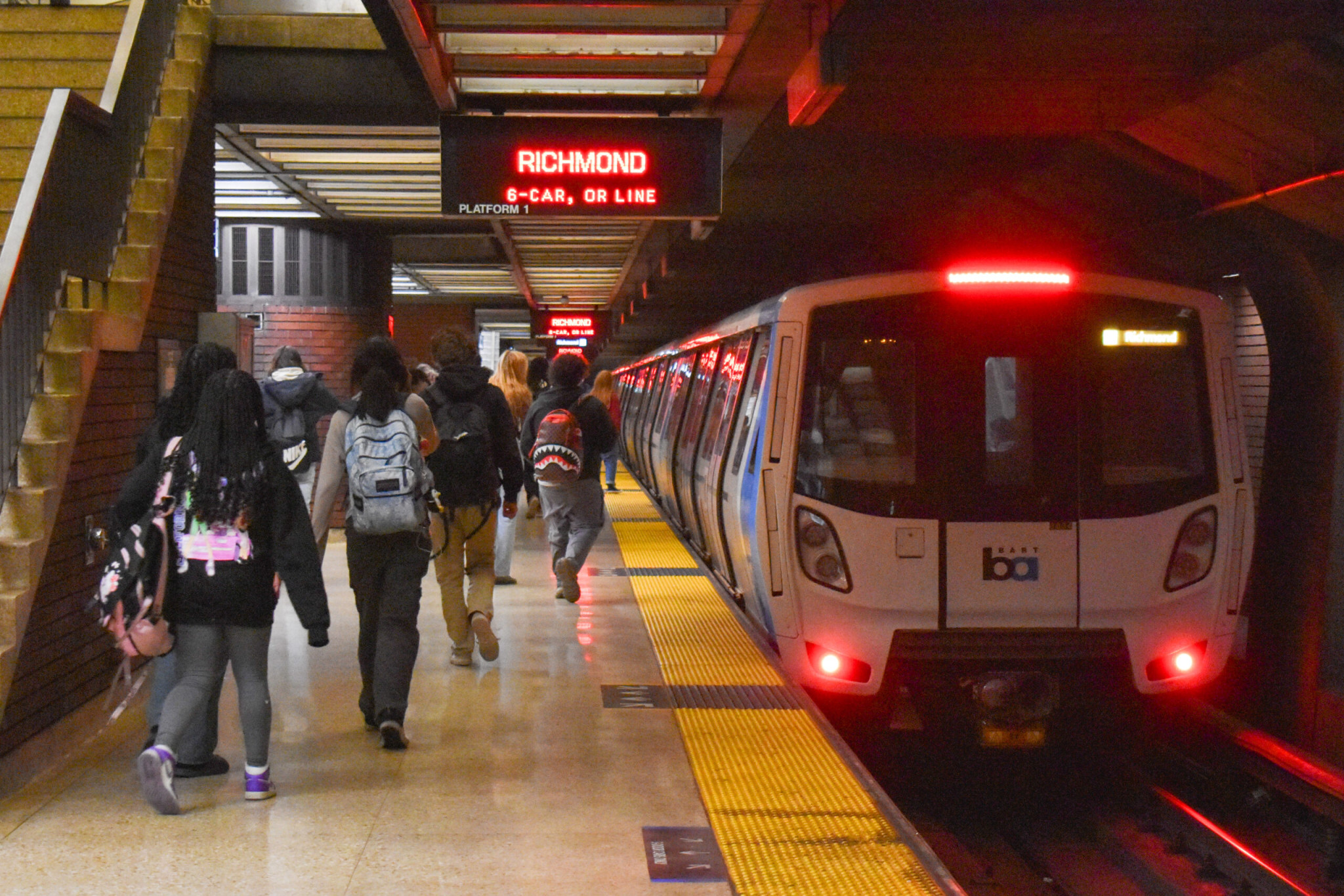BART is a crucial part of the Bay Area’s transportation infrastructure, and it’s in trouble. The Bay Area’s sole heavy-weight rail system has recently been faced with a financial crisis. According to BART’s website, the transportation system is $326 million in debt, and in 2028, BART will face an annual operating deficit of $264 million. Because BART is so critical to the Bay Area, local and state governments must continue to prioritize BART funding through the various available channels.
The truth is, “our roads and highways are at capacity. The Bay Bridge is also at capacity,” explained Rebecca Saltzman, a member of the BART board. Bay Area roads simply cannot fit the wealth of cars needed to transport people if BART isn’t an option.
Additionally, BART acts as a necessary public service, supporting the working-class citizens of the Bay Area through equitable transit. A 2022 survey conducted by BART revealed that 51 percent of riders report household income below $50,000, and 53 percent did not own a vehicle.
This is why California and local governments must give BART the money they need to stay afloat. California State Senate Bill 532 was a bill that would have increased funding for Bay Area public transit, but unfortunately, it wasn’t passed. The bill would have temporarily raised tolls on seven state-owned bridges in the Bay Area by $1.50 for five years. This would provide $2.5 million in funding for public transportation in the Bay Area over three years. A large portion would go to BART. Though Senate Bill 532 would not have covered all of the debt, this state funding would be a good start to repairing the damage done by the pandemic.
One reason it may have been voted down was shared by Alez Schultz, a graduate student at UC Davis. Schultz said, “For those of us who don’t have a good transit alternative to a bridge crossing ... this stings.”
However, there are ways to collect funds while minimizing financial harm on Bay Area citizens; toll exemptions are provided to US veterans — it's not so far-fetched to imagine them being provided for low-income households.
Federal aid was given to public transit following the pandemic, but that source of funding will end in 2025. BART’s website reports that the total ridership for 2023 was 48 million trips. That is up 16 percent from 2022, but BART still has not fully recovered financially.
“The relationship between housing and transportation is undeniable,” said State Senator Corey Smith, executive director of the Housing Action Coalition. “Public transportation for residents is essential as we work to solve California’s housing shortage. SB 532 is a needed investment into the Bay Area's future.”
Good and reliable public transportation like BART gives more opportunities to those living in less affluent areas, and more State funding will help guide BART on its road to recovery.





